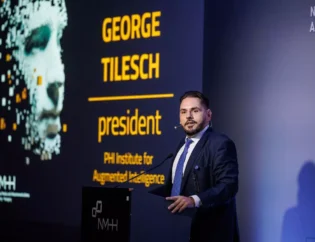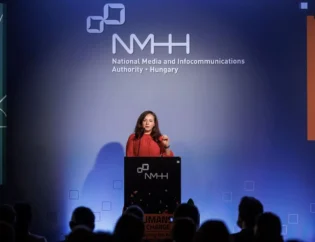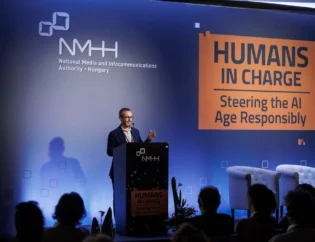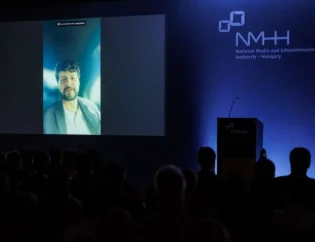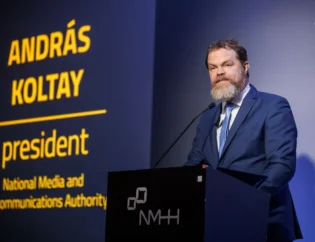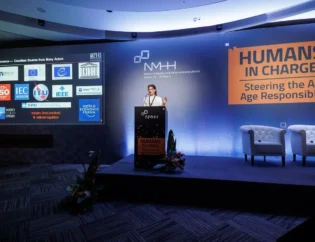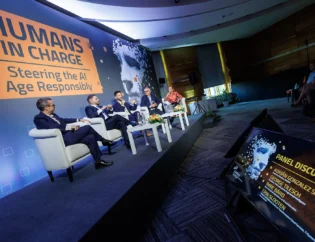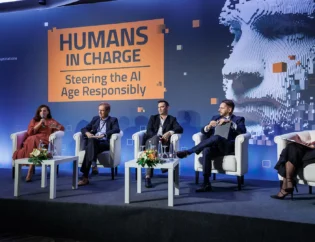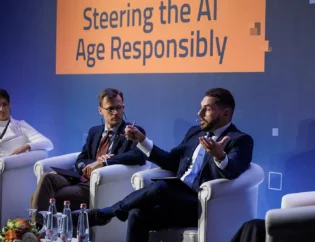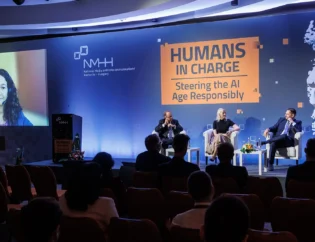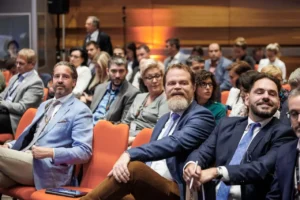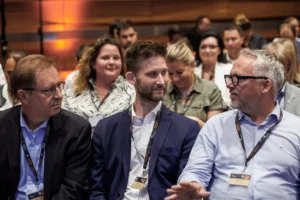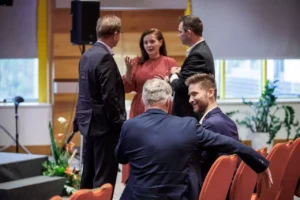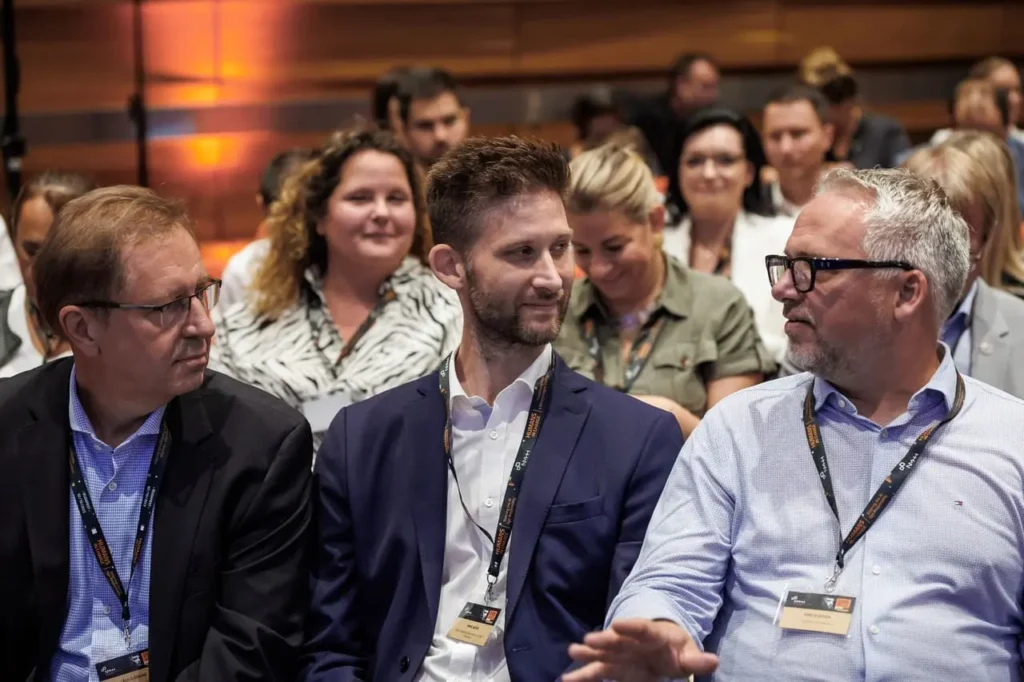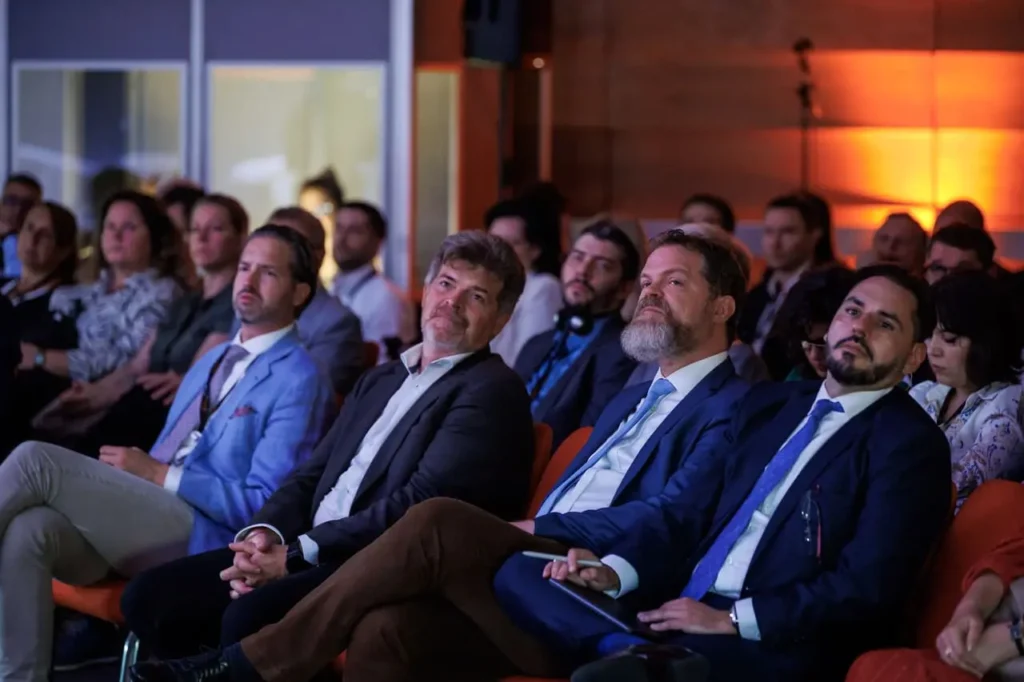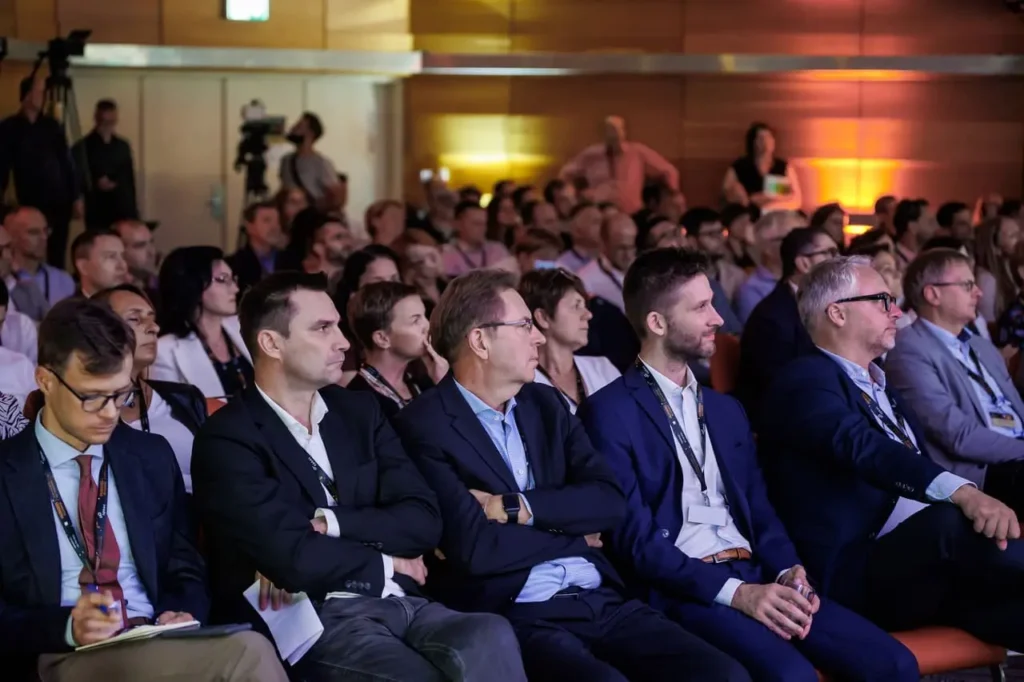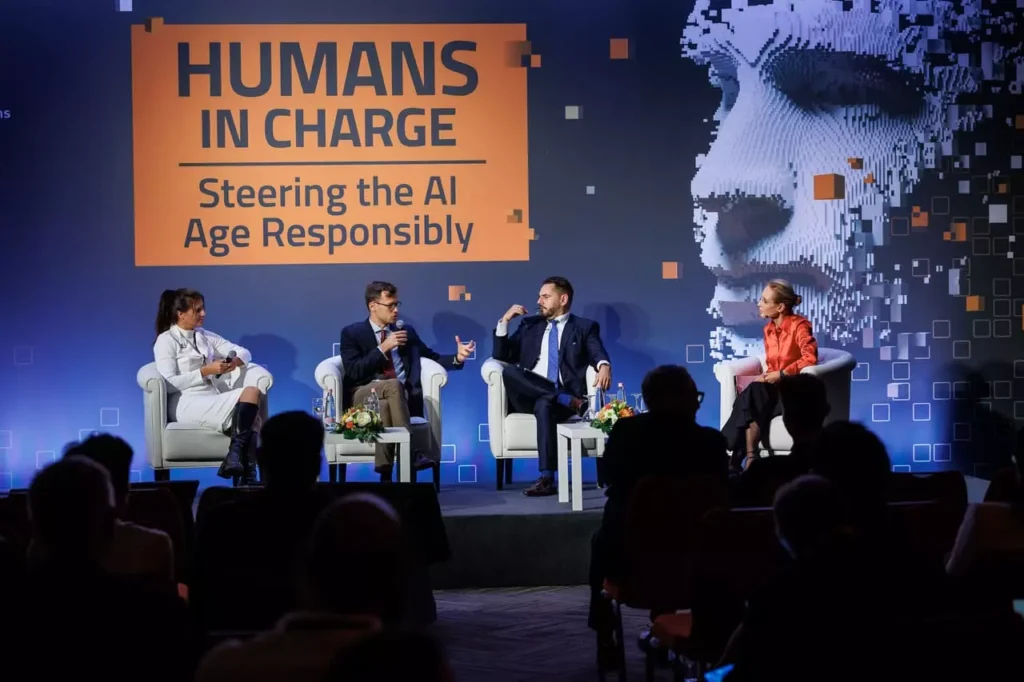Gianluca Misuraca: governance of, with and by AI
How can governments harness the potential of AI to the benefit of their citizens? This was the keynote speech of Gianluca Misuraca, an Italian researcher based in Spain and founder and one of the Vice Presidents of AI4GOV, a global consultancy firm in the field of strategic foresight, social innovation and digital governance, at the Humans in Charge conference on artificial intelligence in Budapest.
AI governance and the search for the Holy Grail
Researching artificial intelligence-based governance is a bit like searching for the Holy Grail,” set the tone for his presentation Gianluca Misuraca, who emphasised that he was first and foremost a futurologist and that when he was to talk about the future, he wanted to focus on the key role of the public sector.
“Government, regulators, parliament and all the other institutions in this ecosystem are sometimes seen as more of a problem, right?” he asked, “They’re the ones who hinder us in innovation, but we get it, okay, they have to take care of the citizens, and that’s why we have a system of government. And then we see exactly what the real power or benefit that AI can potentially bring to governance and public services is. But the question is – and I think you already know the answer – whether we are ready or not.”
He said that when he worked for the European Commission in 2010, in one of their projects they were looking at a possible scenario of a major pandemic coming from Asia, and presuming it actually did, they examined how to warn policymakers of its eventuality, and that technology could be one of the factors that could prevent or, for that matter, facilitate the spread of a pandemic.
Then, in their research during the Covid pandemic, they focused on how we could imagine what the future would look like, but more importantly, Gianluca Misuraca stressed, how we could prevent the future.
He underlined that the current system of innovation was apathetic and closed. During Covid, society became much more fearful of a future – and here he mentioned Shoshana Zuboff’s book The Age of Surveillance Capitalism – where all functions of the state are exercised through giant private corporations. He also referred to Cass R. Sunstein’s book Laws of Fear, written in 2005 and hugely popular again from 2020, whose main message he interpreted to be that basically, we do nothing because we don’t know what will happen if we do something.
“The ideal scenario would be to return to an open innovation system. To a system in which we can trust others,” the researcher said adding that this was not the case today, of course, so “it is more important to prevent negative scenarios from happening than to try to achieve the ideal scenario. And that is the responsibility of policymakers and the regulator.”
The key role of the public sector in regulating artificial intelligence
Gianluca Misuraca went on to talk about the trinity of the role of the state in the context of artificial intelligence and in broad terms: the role of the state as regulator, user and intermediary.
As regulator, he said, “we need to provide the framework and not necessarily go into the details of defining something that will be obsolete tomorrow. So we only need to define the framework, the principles, and the red lines that no one can cross, thus limiting the negative consequences of AI.”
The state is also a user of this technology when providing various services to citizens, and as an intermediary, it facilitates the social acceptance of AI by encouraging innovation and cooperation between stakeholders at the local, national and global level.
“Policymakers are actually facing a dilemma, one side of which is obviously deploying these technologies to improve the quality of digital services. There is a lot of potential in using a body of technologies. On the other hand, they have to protect citizens. So they can’t do something if they are not sure that it will be beneficial or if they are uncertain about the outcome,” pointed out Gianluca Misuraca explaining why the EU’s objective in the Coordinated Plan on Artificial Intelligence to have the public sector pioneer the use of AI was a difficult issue.
Governance of, with and by AI
A key idea of his presentation was the trilemma “of, with and by”. This is largely about the relationship between governance/regulation and artificial intelligence.
The governance of AI is an approach that, according to Gianluca Misuraca, presupposes a need for alignment with existing institutional mechanisms and cultural environments.
“This is what the current debate is about. Everyone is busy preparing policies, codes of conduct and some sort of principles. But then, at one point, we have to decide whether to regulate it or not. (...) Of course, we can overregulate it but we have to strike the balance,” said Gianluca Misuraca.
Governance with AI implies that humans retain full control over the technologies that augment their intellectual capacities, and is thus also about protecting human rights.
“Digital sovereignty means being the owner of your own data. So if someone uses my data, I want to know what they do with them. And it’s a very basic principle that is actually already enshrined in the GDPR, so there’s nothing new here,” the speaker explained.
And the theoretical possibility of governance by AI requires us to determine what is ethically at stake when human decision-makers hand over control to the superhuman capabilities of AI in some respect.
“We have to make sure that if we use this technology, which can truly enhance our cognitive abilities and sometimes even change our behaviour, especially when it comes to children (...), these changes are for the better. Potentially, it would be good because, especially in the public sector, we can somehow cede control to this superhuman capability to do things that we, humans, given our limitations, are not capable of. It can save a lot of very boring or routine work, provided, of course, that humans are in charge just as the conference title says. This is why we need human oversight of artificial intelligence in government, especially in the public sector, so that we can control how this technology is used, particularly when it comes to very critical issues and risky uses,” he added.
Harnessing the real power of AI in the public sector
Gianluca Misuraca and his colleagues published a report in 2020 on how EU Member States use artificial intelligence in public services. This database has been updated since then, and by now has documented thousands of public service applications.
In his presentation, the Italian expert grouped these into four categories, ranging from innovations that bring small improvements to applications that increase organisational efficiency and innovative public solutions that induce radical changes.
He cited several positive examples of data-driven policymaking systems that are in the experimental phase but not yet operational in practice, from Finland, Sweden, Spain, the Netherlands, Estonia and Belgium.
Despite the progress made, there are many challenges to overcome, plenty of dilemmas to face and a great deal of problems to solve.
“Recent data from the ITU (International Telecommunication Union – ed.) show that less than five per cent of the world’s countries (9 countries) have a, let’s say, digital governance framework that can cope with the current challenges, and only 30 per cent of them are making some progress,” Gianluca Misuraca underlined.
He gave another example of how much more needs to be done. A recent report by the UK National Audit Office found that only 20 per cent of the workforce was equipped to cope with the new phenomenon of artificial intelligence.
“This is why the government needs to prepare and train civil servants for the digital future. And this is very much needed now,” he stressed.
This speaker
Gianluca Misuraca
Executive Director of the Master on Artificial Intelligence in public services (AI4GOV)
Gianluca Misuraca is founder and Vice President on Technology Diplomacy and International Relations of Inspiring Futures (IF), a global advisory consultancy in Strategic Foresight, Social Innovation and Digital Governance with headquarters in Lausanne and Seville.
Previously, Gianluca was a Senior Scientist at the European Commission's Joint Research Centre where, from 2009 to 2020, leading research and policy support in the field of Digital Government Transformation, Social Innovation and Artificial Intelligence for the public sector as part of the AI Watch.
More speakers


Axente



Erdelyi






Misuraca



Kriisa



Tilesch



Drajkó



Porkoláb



Halmos



Slooten



Bárd



Juhász



Benifei




